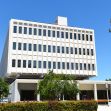California’s commitment to clean and renewable energy is among the most progressive in the world. A lawsuit by an energy watchdog organization, however, challenged some of the recent decisions of the State’s key energy regulatory agency and sought the calendar of its current president for the time she served as Governor Gavin Newsom’s senior energy advisor. Newsom objected to the request, citing an exemption to the State’s Public Records Act. He lost in the trial court and appealed, where he lost again because of the “public interest in access to (the) calendar entries.”
Alice Busching Reynolds was appointed to the California Public Utilities Commission (CPUC) by Governor Newsom in November 2022. She is now its president. In her new position, she has made some controversial decisions, including reducing financial incentives for homeowners who switch to solar power. The Energy Policy Institute (EPI), which describes itself as a “watchdog organization working to expose attacks on renewable energy,” filed a request for Reynolds’ calendars for the year 2021, part of the time she was advising Newsom, because she allegedly met with representatives of the CPUC, electric utilities, and energy workers’ union ten times during her tenure.
The Governor’s office denied EPI’s request and filed a petition for a writ of mandate, claiming the “deliberative process privilege” of the California Public Records Act prevents disclosure. Los Angeles Superior Court Judge Mitchell Bekloff denied the petition and Newsom appealed.
The privilege Newsom claimed, according to the First Amendment Coalition, was modeled after the federal Freedom of Information Act and was added to the California Constitution through a ballot initiative. It “allows nondisclosure of records revealing the deliberations of agency officials” and was created by the California Supreme Court in 1991 in Times Mirror Co. v Superior Court, a case where the Los Angeles Times sought five years of the calendars of then-Governor George Deukmejian. The Court explained that “the key question in that case and all those that followed it was ‘whether disclosure of the materials would expose an agency’s decision-making process in such a way as to discourage candid discussion with the agency and thereby undermine the agency’s ability to perform its functions.’”
Although Deukmejian lost that case which sought the “wholesale disclosure of five years of the Governor’s calendar events,” the Court emphasized, “where the public interest in certain specific information contained in one or more of the Governor’s calendars is more compelling, the specific request more focused, and the extent of the requested disclosure more limited,” disclosure may be required “whatever the incidental impact on the deliberative process.”
In a unanimous 3-0 decision before a panel of justices from Division One of California’s Second District Court of Appeal, Justice Helen Bendix, the opinion’s author, concluded that EPI’s request was “sufficiently specific, focused, and limited, and the public interest in disclosure sufficiently compelling when measured against the minimal impact on government decisionmaking to override the deliberative process privilege.” She also noted that the public has a substantial interest “in knowing the extent to which the current CPUC president interacted with the CPUC and the entities CPUC regulated when she was the Governor’s senior advisor for energy.”
Bendix began the Court’s decision by reviewing EPI’s request because they claim the Governor’s office “had significant involvement in CPUC’s decisionmaking,” and thus, they had a right to know about Reynolds’ interactions with the “CPUC, Sempra Utilities, San Diego Gas & Electric, Southern California Edison, Pacific Gas & Electric, Engineers” and energy workers’ unions. EPI said the future changes made under Reynolds, “created new barriers for utility customers to invest in rooftop solar and battery storage.” Newsom disagreed, citing the precedent set by Times Mirror Co. v Superior Court.
The opinion then went into a detailed explanation of the deliberative process privilege, which Bendix observed was “not an express exemption, but an application of the PRA’s catchall provision.” She quickly distinguished Newsom’s request from that made by Times Mirror in the Deukmejian case. In that case, she noted that “Disclosing the identity of persons with whom the Governor has met and consulted is the functional equivalent of revealing the substance or direction of the Governor’s judgment and mental processes; such information would indicate which interests or individuals he deemed to be of significance with respect to critical issues of the moment. The intrusion into the deliberative process is patent.”
But that was not the case here and it was not the case in two other precedents Newsom cited for several reasons, including the narrower scope of EPI’s request that only asked for Reynolds’ calendars but did not ask for meeting agendas nor any other information regarding the substance of the meetings with energy interests. Bendix cited the Supreme Court’s decision in Times Mirror that said, “…a sufficiently narrow request might justify disclosure “whatever the incidental impact on the deliberative process.” It therefore did not “discourage candid discussion,” nor did she find it “remarkable” that Reynolds met with energy interests, since “one would expect” the Governor’s energy advisor to meet with those in the energy industry.
The opinion next emphasized the public interest in disclosing with whom Reynolds met. She again quoted Times Mirror, which concluded, “The deliberative process privilege itself applies only if the public interest in nondisclosure clearly outweighs the public interest in disclosure.” She concluded “that the public interest in nondisclosure in this case does not clearly outweigh the interest in disclosure.” Finally, she said, “To reiterate, EPI’s narrow request intrudes minimally into the Governor’s deliberative process, and therefore the public interest in nondisclosure of Reynolds’ calendars is necessarily far less than in . Further, the public interest in disclosure in this case is both more specific and more compelling than the public interest in …our holding therefore is not inconsistent with that authority.”
The trial court decision was affirmed, and it could help some energy watchdogs perform their function in the future.






